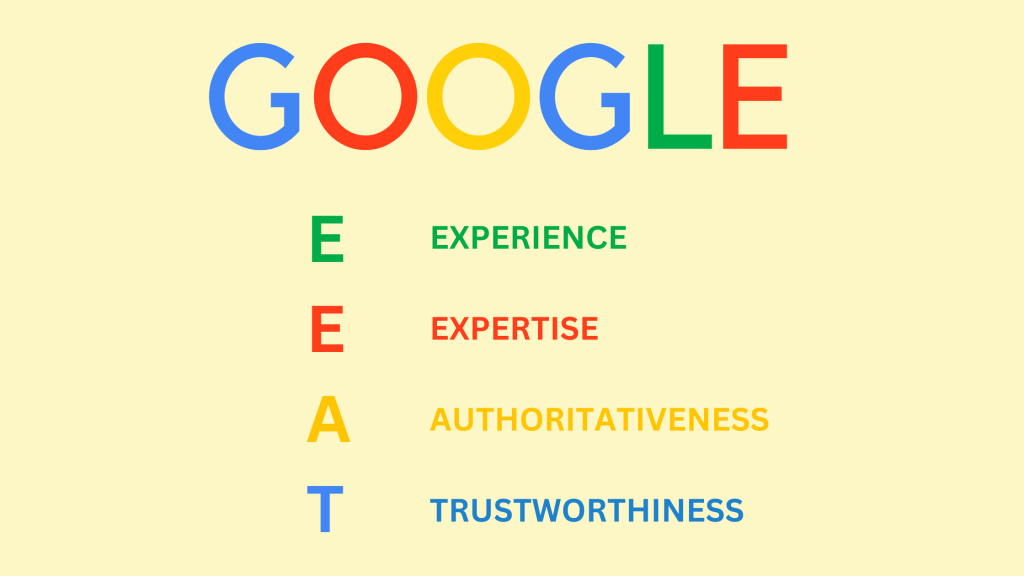The Evolution of Google SGE: What You Should Stay Updated On
- What is SGE and how it works?
- What are the capabilities of generative AI in search results?
- How to use Search Generative Experience on mobile?
- How to use Search Generative Experience on PC?
- The impact of SGI on people searches and SEO
- How to optimize your website for Google’s search generative experience?
- Conclusion
What is SGE and how it works?
Google is constantly engaged in enhancing the search experience to deliver what searcher seek from it. On May 10, 2023, Google unveiled a new feature on its search function, the Search Generative Experience (SGE). This new feature tends to improve the user’s experience by means of AI technology. AI has been making a lot of waves in the digital landscape in the past few years, and Google has joined this trend, by making use of this technology to improve the search experience.
It uses generative AI technology to create short essay-style answers to a search query, along with suggestions for more information, suggested follow-up questions, and sometimes other features. However, it doesn’t replace conventional search results but appears above them. The introduction of the Google search generative experience marks a significant shift in how users interact with search engine result pages.
With its new generative AI capabilities in Search, people will see an AI-powered overview of key information along with links to dig deeper on the given topic. It is especially useful for new internet users, who may often get overwhelmed with the amount of information online.
Google provides users with concise summaries or brief answers that are particularly beneficial for grasping intricate concepts and resemble the compact information boxes at the top of search results. Additionally, it offers a pathway to delve into more specifics by clicking on links to the original sources.
The capabilities of generative AI in search
- SGEs are fuelled by Google’s Large Language Model (LLM), its versatile model PaLM 2, and the Multitask Unified Model (MUM).
- SGE will show an AI-powered snapshot to help searchers quickly get an overview of the topic, along with factors to consider and helpful information.
- These snapshots show a starting point for diving into a diverse array of online materials and perspectives.
- It allows people to get deeper insights from a diverse range of content, from publishers, creators, retailers, businesses, and more, and use the information they find to advance their tasks.
How to use Search Generative Experience?
On November 8, 2023, the beta version of the Search Generative Experience expanded to over 120 countries and territories and added support for four new languages.
SGE (Search Generative Experience) is currently available in five languages, including English, Spanish, Portuguese, Korean, and Indonesian. Also, users in more than 120 countries and territories can now use SGE to get AI-powered overviews and ask follow-up questions on their searches.
How to use Search Generative Experience on your mobile?
Here are the requirements to begin with Google SGE on your android phone
- Android phones requires to update to the latest version of the Google app.
- Sign in and access your personal Google Account.
- Enable Chrome sync for your account.
- Ensure that “Web and App Activity” is turned on.
- Make sure SGE is turned on while browsing.
What you should have for implementing above steps:
- Use the Chrome web browser. Download chrome if not available
- Be at least 18 years old.
- Have an individual Google account that you manage on your own.Currently, Google Workspace accounts—including Google Workspace for Education accounts—cannot access Search Labs and its experiments.Find out which languages and nations are home to Search Labs.
- Turn on SGE
Important: It may take some time for the experiment to appear after turning on SGE.
How to use Search Generative Experience on your PC?
- Launch Chrome on your PC.
- Verify that you have turned off Incognito mode and are logged into your Google Account.
- Click the New tab New tab button at the top of the browser.
- Click the Labs symbol in the upper right corner of the page.
- Turn the experiment on
- Turn on the SGE card.
- Follow the instruction displayed on the screen.
- Go to Search Labs’ SGE.
- After turning on SGE, you may find AI-powered overviews and be able to ask follow-up questions in Search.
- Receive AI-powered overviews in search results.
- To pose an additional query in the new conversational format:
- Click “Overview” and select “Ask a follow-up.”
- Type your follow-up query
Tip: Try asking questions to understand topic with multiple perspectives. Find a variety of options, information, and perspectives using SGI.
The impact of SGI on people searches and SEO
The SEO landscape is constantly evolving. Google’s Search Engine Generative (SGE) model will have a huge impact on how people find information online and how businesses rank in search results as it improves at understanding language and creating its own content.
- As an impact of the search generative index, some websites may see a decline in traffic. For instance, websites with poor content and excessive keyword usage may see a decline in traffic. SGE is getting more powerful day by day in identifying low-value content and foreign languages. It focuses on providing the most relevant results to the search queries along with simplifying their search process. In other words, it aims at providing more authentic content with respect to a search query within a smaller number of clicks.
- As SGE emphasizes not just high-quality but also comprehensive content, websites with detailed and high-quality content will fetch higher rankings on search engine result pages.
- A search generative index looks at much more than just a precise keyword match; it understands language on a deeper level and considers synonyms, related phrases, and semantic meaning. It uses a combination of conventional techniques, including latent semantic analysis, topic modelling, and semantic search, to understand the intent of the content and the search query.
- SGE also considers technical aspects like security, page speed, and mobile friendliness. Hence, your website will rank lower if it loads slowly or is not mobile-friendly. The user experience will be an important aspect of the ranking of a site. If a website loads quickly and has a responsive design, there’s a higher chance of higher rankings. In short, it is important to provide an enriched user experience to rank higher on search engine results.
How do you optimize your website for Google’s search-generative experience?
The changes in the layout of Google’s search engine result pages as well as in the user’s search experience have called for a shift in SEO strategy as well. For example, in the search query “good restaurants nearby,” the AI-generated text highlights the key factors to consider when choosing a restaurant as well as lists the best restaurants nearby to consider along with other information. All such content appears before any organic or paid search listings.
Thus, it is important for SEO professionals, marketers and content creators to look into experimenting with new ways to showcase their content through comprehensive content, content resources, videos, images, and info-graphics. If you want to optimize your site and make the most of Google’s Search Generative Experience, here are some tips to improve your rankings:
People centric content

Google and other search engines are now emphasizing more on creating helpful and valuable content. The old tactics of content optimization are replaced by the need for building topical authority and thoughtful leadership. Generic content is losing value, and valuable content is the need of the hour to stay at the top of the search engine rankings. Searching for generic experiences can actually help content creators create well-researched, unique, and people-centric content.
Focus on demonstrating E-E-A-T on your site

Google’s search algorithms value E-E-A-T signals: experience, expertise, authoritativeness, and trustworthiness. In order to meet Google’s E-A-T standards, you must demonstrate your expertise and experience. It also involves authority-boosting activities like building authority and link building through reviews and case studies. One should also consider leveraging experts in their content creation workflow.
It is also good to implement first person narratives in its content strategy. First-person narratives provide a glimpse into the real human experience. They add authenticity to your content and make them invaluable assets when dealing with complex topics.
Optimize visual content

Visual content is crucial for optimizing website content as it can significantly boost engagement, improve user experience, and enhance search engine rankings. Visuals, such as images, videos, and infographics, effectively capture attention, break up lengthy text, and convey information more engagingly than plain text alone. It catches the attention of the searchers and encourages them to explore deeper into the content, and increases the likelihood of sharing it with others. Additionally, incorporating relevant and high-quality visuals can improve a website’s search engine ranking by enhancing its overall relevance and value for users. Here are some tips to optimize your visual content:
Customize your visual content to address the search intent of the popular queries.
- Split lengthy and intricate videos into bite-sized clips addressing specific topics, questions, concepts, or issues.
- Make sure to use high-quality original visuals to communicate your ideas, product features, opinions, and so on.
- Enhance the schema mark-ups in your videos and images to improve their visibility and searchability.
- Use structured data and schema mark-ups to help search engine crawlers understand your image and video content.
Manage your online reputation

In order to optimize your site for a search-generative experience, make sure your online reputation management is on point. Building a good online reputation involves seeking positive reviews from genuine clients and being active on social media. When connecting with your clients and followers, look for a way to combat negative reviews.
Creating valuable resources

Creating a go-to resource for all information in your niche is another effective way to optimize your site for the search generative experience. experience. For this, one should cover topics indepth using their experience and expertise and extensive research. One should also strategically build internal links to their priority pages to enhance their authority. Don’t forget to earn backlinks, as they boost the authoritativeness of your content.
Data-driven strategy

SEO strategists must make use of data analysis and make necessary changes to their strategy when things are not working as expected. As Google’s SGE is still in its infancy, marketers and SEOs are still trying to determine the best tactics that can make it tick and help your site’s visibility in SGE. This may involve experimenting with different content strategies and leaving behind some of the old SEO practices.
Optimize for long-tail queries

Long-tail queries are emerging as an important aspect of the SGE. These queries allow AI to generate personalized answers from various sources that can boost your visibility and engagement. When AI links your content as a source, it can tremendously boost your engagement and visibility on search engine result pages.
Make use of natural language

When crafting your next content piece, make sure you are using natural language and addressing the follow-up questions naturally within the text. SGEs are trained on massive datasets of text and code, so they are able to understand and respond to natural language queries. One should also avoid using overly technical language in the content.
Leverage structured data mark-ups and SEO strategies

A robust SEO strategy coupled with effective structured data mark-ups techniques plays an effective role in increasing any site’s ranking. Structure data has been used for strengthening SEO strategies for over a decade, but it has now become more important than ever. It helps AI and search engines better understand your content, present it in a more organized, informative, and engaging way, and it can even help you rank better in SGE carousels. One must implement schema mark-up to provide structured data about the website’s content, such as product information, event details, etc.
Organize your content effectively

Organizing your content is a way to get it understood by the search engines. There are many ways to make your data organized so users can easily get the information they are seeking. One should use clear headings, subheadings, and bullet points to organize the content. It helps SGE identify key points and relationships between different sections of your content.
Collect high-authority links

High-authority links are an integral part of a strong SEO strategy. It will also improve the likelihood of getting your content found in Google’s AI search. Google uses many different factors to determine which content is shown in the results, including the authority of the website. If you want your website to be noticed by more people, it’s important to get links from high-authority websites. For this, you may consider the following points:
- Create superior-quality and relevant content that people will like to link to.
- Promote your content on social media platforms.
- Reach out to high-authority sites and bloggers in your niche and ask them to link to your content.
Page speed

A slow-loading website tends to have a high bounce rate for users. They are also not able to reach the top position on Google. There can be many reasons why a website is slow, such asnon-optimized code and assets and poor server configuration. It is always important to make sure your website runs fast with good website responsiveness. As it is critical for a good user experience and eventually for getting your site ranked on top result pages of the prominent search engines.
Conclusion
While the world of Google’s Search Generative Experience (SGE) remains largely unexplored, marketers can still equip themselves with knowledge to navigate this uncharted territory. Contrary to what some may fear, SGE doesn’t herald an era of doom and gloom for marketers but rather presents a promising frontier filled with opportunities. Though the exact trajectory of SGE’s evolution remains uncertain, marketers can seize this moment to enhance their rankings, boost traffic, and drive revenue. The key lies in embracing SGE with optimism, viewing it as an opportunity to evolve alongside the ever-changing landscape of search and digital marketing.







